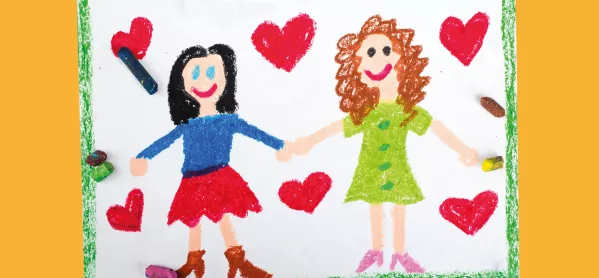- Home
- ‘How much credibility do teachers have with their young audiences when it comes to sex education?’
‘How much credibility do teachers have with their young audiences when it comes to sex education?’

There can’t be many serving teachers about nowadays who remember a gentle BBC radio comedy from the 60s and 70s, The Men from the Ministry. Two bungling but genial bureaucrats got into all kind of scrapes through their own incompetence which was exemplified when one applied for a job at the Labour Exchange (as we called Job Centres back then).
“We’ve got a right one here,” remarked an interviewer: “In the box marked sex he’s answered ‘very seldom’!”
Sex and Relationships have always bewildered my generation: and there was no Education in those topics in my youth. So blokes my age describe learning about the birds and the bees “behind the bike sheds, fnar! fnar!” When a teenager, feeling lost and inadequate on the topic, even I knew those contemporaries who claimed to know it all were lying.
The current generation of teenagers has it no easier. If what we “learned” was largely myth, youngsters nowadays can “find out everything about sex” online: unrestricted, uncontrolled porn gives many young people distorted, dangerous and even perverted ideas of what sex involves.
With young men (in particular) still embarking on adulthood with only the haziest ideas of what constitutes, for example, genuine consent, we should be worried. Unsurprisingly, therefore, the suggestion that Education Secretary Justine Greening might make Sex and Relationships Education (SRE) compulsory have been greeted with acclaim.
By contrast, my somewhat flippant opening presages a warning.
Can we deliver?
Given so much sexual violence at large (taking place in all of society including, if you believe the press, in schools), there is an undeniable need for us to educate our young people: they need to appreciate that it is the relationship, not sex, that is important and that building and maintaining relationships takes effort and emotional commitment.
But I must question whether schools can do that effectively, and whether teachers are the right people for the job.
This isn’t a criticism of the teaching profession: on the contrary, I just think that, before making SRE compulsory in schools, we need to be sure we can deliver.
SRE is usually taught through Personal, Social, Health, Emotional and Economic Education (PSHEEE… with any number of “E”s you want to add). Yet in schools, there are precious few with a fully-trained specialism in that broadest of subjects. On the contrary, in secondary education our almost-entirely graduate profession is rightly built on subject specialisms related to our degree. Graduate historians teach history, though they might add some politics. Chemistry graduates teach chemistry, though they may broaden into other sciences. Even if they’re expert on the physical aspects of sex, does a biology teacher of a certain age necessarily have much to say convincingly to young people about relationships? I recall a conversation about SRE with a crusty biologist who said bluntly, “I’ll do the plumbing: but I’m not doing all the other stuff”.
Such conversations made me despair: I’ve always believed we’re teachers foremost, and subject experts only second. But two questions remain.
First, how much credibility do teachers have in SRE with our young audience? What connection do I, a sexagenarian male, have with a 15-year-old girl coming to terms with her young-womanhood? Why should she believe a word I say?
Second, SRE faces the same problems as those raised by other politicians’ demands. Take lessons in personal finance. If we’re not careful these can prove astonishingly tedious. Partly because, to a 13-year-old audience, such things have no relevance - yet: by the time they do need to think about personal finance, the lesson will probably be long forgotten. Similarly, the moment when young people, or young couples, need to consider responsible and safe behaviour with regard to sex and their relationship is likely to be a long way from that school classroom on a wet Monday afternoon.
There are many questions here, and few answers. Society needs to think about how it helps young people to grow into adults and to form a responsible attitude to sex and to relationships. But until we can find some of those answers, I’m not convinced that compulsory SRE in schools will prove an effective solution.
Dr Bernard Trafford is headteacher of the Royal Grammar School, Newcastle upon Tyne, and a former chair of the Headmasters’ and Headmistresses’ Conference. The views expressed here are personal. He tweets at @bernardtrafford
Don’t miss TES’ sex and relationships education special in tomorrow’s magazine, available in all good newsagents. To subscribe, click here. To download the digital edition, Android users can click here and iOS users can click here.
Want to keep up with the latest education news and opinion? Follow TES on Twitter and like TES on Facebook
Keep reading for just £1 per month
You've reached your limit of free articles this month. Subscribe for £1 per month for three months and get:
- Unlimited access to all Tes magazine content
- Exclusive subscriber-only stories
- Award-winning email newsletters



